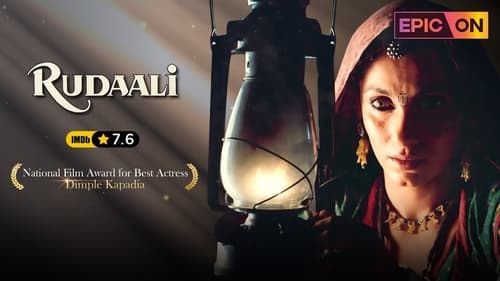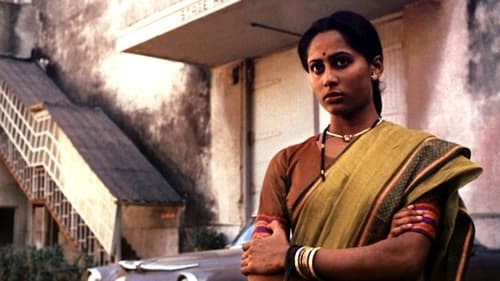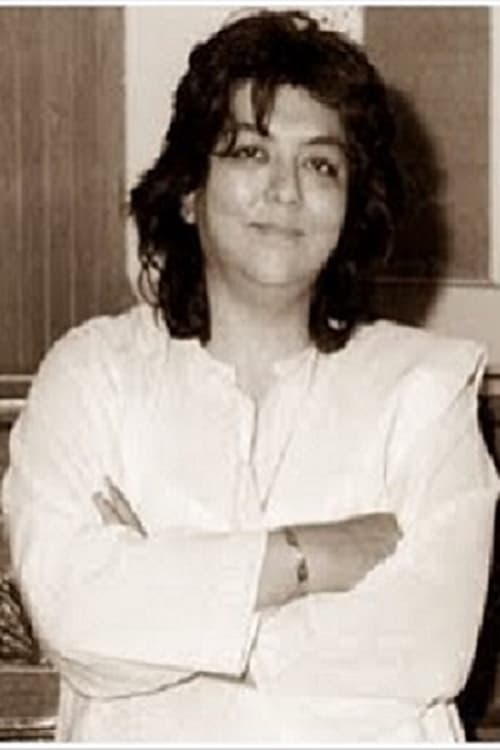Kalpana Lajmi
Birth : 1954-05-31, Mumbai - India
Death : 2018-09-23
History
Kalpana Lajmi is an important figure in Indian womens' liberationist filmmaking. After working on documentaries, she began to write some of her own scripts, which centered on independent heroines who were able to make their own life choices. All her films have women protagonists who defy stereotypes associated with marital life and sexuality, which, in theme, treatment and emotional charge, were far ahead of their times—with womens' liberationist and queer characters seen as outcasts in Indian society.

Director
Mithun Chakraborty plays a powerful and domineering priest who rules his temple and the surrounding village with an iron fist, all supposedly for the sake of religion. He becomes enamored with a prostitute (Sushmita Sen) from a local brothel and begins spending more and more time with her. But when the village postman (Anuj Sawhney) takes a liking to her as well, the priest is forced to deal with him and a growing village rebellion.

Writer
The Saikia family are an extremely wealthy family in Assam. The two sons of the family are Sanjay (Sayaji Shinde) and Sunil Saikia (Sanjay Suri). The latter being the kinder of the two whilst the former is very hot-tempered and has occasional mood swings. The parents decide to get him married to Durga (Raveena Tandon), a lower caste girl from a poor family, thinking she will be able to cope with Sanjay's temper. Sanjay initially refuses to marry Durga, but when his mother threatens to cut him off from the family will he relents. Thus, Durga marries Sanjay and looks forward to her new life. From day one, Durga is subjected to physical and mental harm by her husband.

Director
The Saikia family are an extremely wealthy family in Assam. The two sons of the family are Sanjay (Sayaji Shinde) and Sunil Saikia (Sanjay Suri). The latter being the kinder of the two whilst the former is very hot-tempered and has occasional mood swings. The parents decide to get him married to Durga (Raveena Tandon), a lower caste girl from a poor family, thinking she will be able to cope with Sanjay's temper. Sanjay initially refuses to marry Durga, but when his mother threatens to cut him off from the family will he relents. Thus, Durga marries Sanjay and looks forward to her new life. From day one, Durga is subjected to physical and mental harm by her husband.

Director
The saga of Mazhuddin Khan alias Immi, born in 1939 in Bombay, British India, as a eunuch, whose mother, Zeenat, in denial that she has sired him, refers to him as her younger brother. She attains fame, has an affair with Inder Kumar Bhalla, only to lose him years later to a younger actress, Chitra. Embittered, she sets out to seek vengeance, takes to gambling and alcohol, isolates and alienates herself from the film-world, and then must also deal with the news that Immi has become the 'father' of a male child, Murad. In the end, it is Immi that saves her from total self-destruction.

Writer
Shanichari is a beautiful girl born in lower cast and her life is full of sufferings because of lower cast, poor finances, lost parents, drunken husband, mischievous son. The title refers to a custom in some parts of Rajasthan—where aristocratic women were long kept secluded and veiled—of hiring professional women mourners on the death of a male relative, a rudaali (pronounced “roo-dah-lee”—literally, a female “weeper”) to publicly express the grief that family members, constrained by their high social status, were not permitted to display—or at times, perhaps did not feel. Underwritten by the National Film Development Corporation (NFDC) and Doordarshan (Indian national television) and based on a short story by famed Bengali author Mahasweta Devi—whose tales often focus on the travails of low-caste women.

Director
Shanichari is a beautiful girl born in lower cast and her life is full of sufferings because of lower cast, poor finances, lost parents, drunken husband, mischievous son. The title refers to a custom in some parts of Rajasthan—where aristocratic women were long kept secluded and veiled—of hiring professional women mourners on the death of a male relative, a rudaali (pronounced “roo-dah-lee”—literally, a female “weeper”) to publicly express the grief that family members, constrained by their high social status, were not permitted to display—or at times, perhaps did not feel. Underwritten by the National Film Development Corporation (NFDC) and Doordarshan (Indian national television) and based on a short story by famed Bengali author Mahasweta Devi—whose tales often focus on the travails of low-caste women.

Director
Based on a short story by Maitreyi Devi, Kalpana Lajmi’s directorial debut tells a story of extramarital affair in the tea gardens of Assam. Famous Assamese singer-composer Hazarika contributes some fine compositions, overcoming the mandatory emphasis on regional folk-music in films set in exotic locales.

Costume Assistant
A girl learns music from her courtesan grandmother and breaks into the burgeoning show business industry of 1930s Bombay, which eventually leads to decades of superstardom as well as romantic entanglements.





